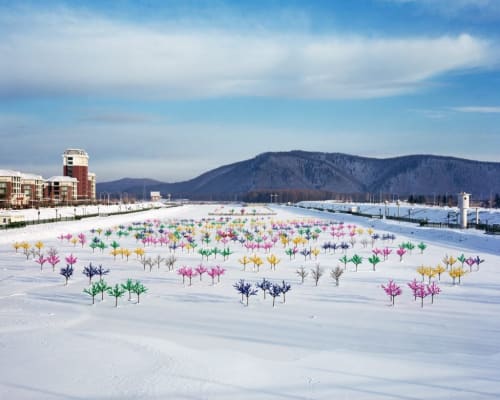Freezing Land
I also photographed the derelict landscape—once-lively places, now forgotten. During this process, the emotions these young people expressed—a mixture of hesitation, loneliness, and hope—resonates with my own feelings about leaving.
— Chen Ronghui
We’re used to thinking of Chinese cities in the context of growth, but the country’s northeast region is an exception. The region bordering Russia and North Korea, with ample natural resources, was the first to develop heavy industries in the 1960s and prospered for decades. There were 15 million immigrants to northeastern China in Mao’s era.
But since the 2000s, the northeast region has suffered the worst recession in China as resources dwindle and other regions have caught up economically. Dying industries and shortages of opportunities have forced people to leave their homes and pursue work in other parts of China.
The body of work titled Freezing Land investigates descendants of immigrants living in the northeast. It is difficult to encounter subjects on the street when the typical temperature is minus 30 degrees centigrade. Therefore, I used a social video app, Kuai shou, to seek out young people willing to share their stories. The young people I met were experiencing a sense of uncertainty. They faced a choice: to leave for challenges in bigger cities or to stay behind and embrace their fate. Chinese media and others have documented their voices only sparsely. Few people knew about their stories, colorful, yet full of loneliness.

